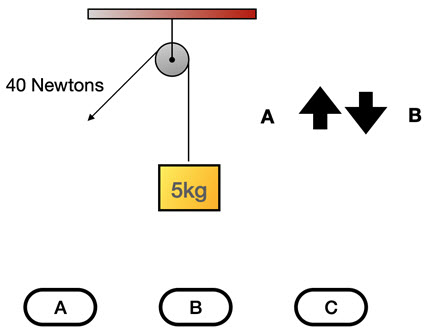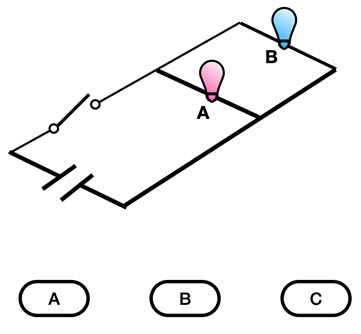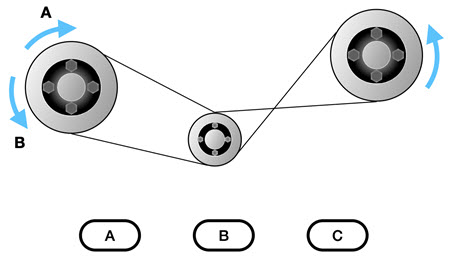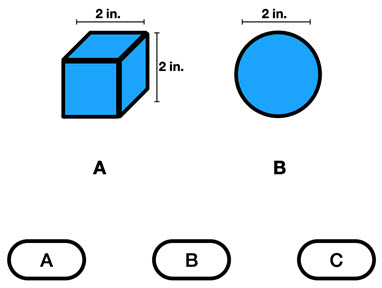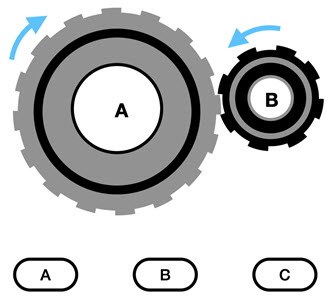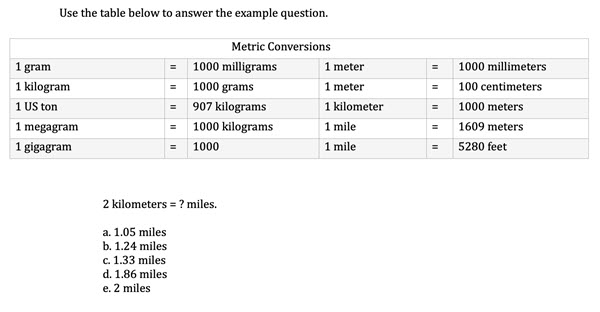If you’re applying for a job as a technician, mechanic, electrician, welder, carpenter, or even a combat soldier in the military, you may be asked to take a pre-employment mechanical comprehension test.
Whether you’re taking the Bennett Mechanical Comprehension Test (BMCT), a Ramsay mechanical test, or the Air Force Officer Qualifying Test, you’ll need to prove that you have a basic understanding of electricity and simple machines including levers, pulleys, and gears. Not only will you have to demonstrate that you fully understand the relevant concepts, but you’ll also have to show that you can perform detailed calculations.
Below, we’ll explain what you should expect, which concepts you should review, and how you can best prepare for your pre-employment exam.
What Is a Mechanical Reasoning Test?
Anyone considering a career in manufacturing, production, utilities, energy, automobiles, aircrafts, installation, or heavy equipment operation should prepare to take a mechanical screening test either as a graduate or a job-seeker. This test will be a multiple-choice test designed to evaluate your general knowledge. Below, you’ll find more information on each of the most popular psychometric tests.
- Bennett Mechanical Comprehension Test (BMCT)
The BMCT lasts for 25 minutes and contains 55 questions. Administered for vocational positions, the BMCT is the go-to psychometric exam for the industry. The test is at a sixth-grade reading level, and while the test is unsupervised, the company offers a random assortment of questions drawn from their database. So, each test is completely different. However, they can ask a candidate to come into an assessment center to take a supervised exam if they have reason to suspect cheating. Learn more about the BMCT II.
- SHL Verify Mechanical Comprehension Test
This short assessment is unsupervised and only lasts 10 minutes. In each of the 15 questions, you’ll be asked to answer a question about a diagram involving levers, pulleys, and gears. If you pass this assessment, you’ll receive an invitation to take a similar, supervised test in their assessment center.
- Wiesen Test of Mechanical Aptitude (WTMA)
The WTMA is a 30-minute long, 60 multiple-choice questions test by Criteria Corporation that tests one’s ability to learn how to operate, maintain, install, and repair equipment and machinery.
- Ramsay Mechanical Tests
- Ramsay MAT: The Ramsay Mechanical Aptitude Test is typically given to candidates for apprenticeships. The test contains 36 questions and lasts 20 minutes. Applicants may be asked about anything from hand tools to basic physics.
- Ramsay MecTest: The Ramsay Maintenance Mechanics Test is given to more experienced tradesman. There are 60 total questions, all of which are multiple choice, including 4 lubrication questions; 4 reading questions; 5 power transmission questions; 7 pumps and piping questions; 8 shop machines, tools, and equipment questions; 10 mechanical maintenance questions, and finally 15 hydraulics and pneumatics questions.
- EEI CAST
The Construction and Skilled Trades Selection System (CAST) is a test that helps employers select candidates in construction and skilled trades occupations. It is approximately 2 hours long and tests Graphic Arithmetic, Mechanical Concepts, Reading for Comprehension, and Mathematical Usage.
- Barron’s Test of Mechanical Aptitude
The Barron’s Test of Mechanical Aptitude is an old mechanical aptitude test that focuses on general physics and mechanics. It is a test that can be used for a variety of fields from mechanics to aerospace engineering and everything in between.
- Stenquist Test of Mechanical Aptitude
The Stenquist Test of Mechanical Aptitude is an old, visual aptitude test. It uses pictures and diagrams to test your ability to learn physical concepts toward jobs in engineering, mechanics, and skilled trades.
- Air Force Officer Qualifying Test (AFOQT)
The AFOQT includes a verbal and numerical reasoning section similar to the SAT or the ACT. However, it also requires more specific knowledge, such as perceptual speed, aviation knowledge, and spatial rotation.
The test is given to anyone applying to go to officer training school or air force reserve officer training corps. You’ll also be asked to pass the test if you plan to work as a combat systems officer, pilot, or air battle manager.
Far from simple, the test contains 550 items divided into 12 different sections, one of which contains situational judgement questions. Examinees may take the test twice but only after 150 days have passed. Students cannot take the exam a third time without written approval.
How to Prepare for a Mechanical Aptitude Test?
Ideally, you’ll have worked with enough tools on enough projects to have a general sense of mechanical principles. However, chances are more than likely that you have gaps in your knowledge.
Plus, just because you have experience using hand tools doesn’t necessarily mean that you know much about calculating forces or kinetic energy. If you’re preparing for an online mechanical assessment test, you’re going to need to brush up on your skills with some practice questions and answers.
Why Do I Need to Take a Mechanical Ability Test?
If you’re applying for a job as a technician of some sort, you’re going to need to prove you know how to use various tools before heading into the job. That is to say that you need to show that you already know what you’re doing. Companies can’t risk allowing a beginner to take on dangerous tasks. They want to know that they can trust you with difficult projects and complicated tools.
Your prospective employers also want to know that you have a general understanding of theoretical physics. It’s essential that you know how to handle the necessary equipment; however, that’s not enough. If you’re going to be working in the military, for instance, you’ll need to know how various parts contribute to the functioning of the machine as a whole.
You’ll be expected to know how a single section of a tank, for example, connects to various other sections. Without this theoretical foundation, you won’t be able to make educated decisions when faced with a challenging repair.
Tips for Succeeding on Mechanical Engineering Tests:
Still worried about your upcoming mechanical reasoning test? Don’t sweat it! Take some of our top preparation tips, and you’ll be more than ready by the time you head out for the assessment center.
- Take the time to draw a picture if there is none. It can sometimes be difficult to work out mechanical concepts in your head, so don’t hesitate to label pulleys and gears, for example, with arrows and other relevant signs.
- While studying, make sure to compile a list of important formulas. While many of the questions will deal with principles alone, if you encounter a problem that requires a formula, you’ll be lost without it. Don’t give away easy points just because you forget the coefficient of a common equation.
- When in doubt, try putting a situation in context. It can be difficult to grapple with abstract concepts. Instead, try to connect the problem to something more familiar.
Topics Covered on Mechanical Tests :
Electricity:
- Circuits- parallel, series
- Magnetism
- Capacitors, charge, current, resistance, voltage
Mechanics:
- Energy-kinetic & potential energy
- Forces-acceleration, friction, gravity, moments, pressure
- Simple Machines-gears, levers, pulleys, screws, springs
Other:
- Area
- Units
- Terminology & Tools

